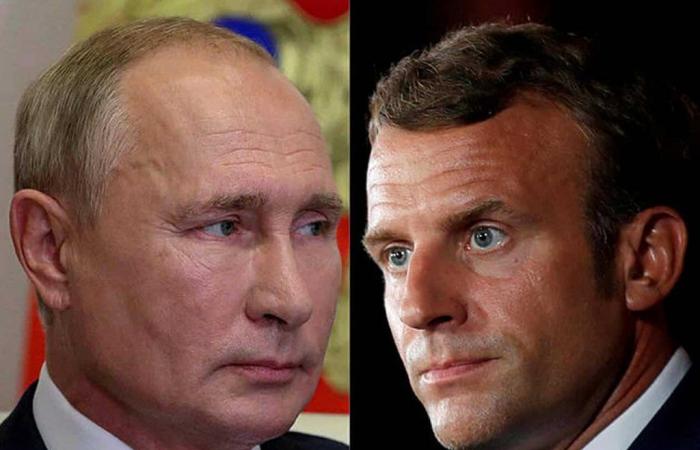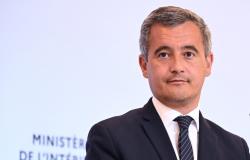During the annual conference of ambassadors on January 6 at the Élysée, Emmanuel Macron, in outlining France’s foreign policy priorities for 2025, once again demonstrated a total lack of strategic vision and understanding international dynamics, which today are more complex and more volatile than ever.
While the shadows of its colonial past continue to hang over Africa, France is mired in a crisis of identity, personalities and legitimacy. Macron’s speech, marked by hypocrisy and ignorance of African realities, sounds like a death knell for France’s African policy.
Held in a context of crisis of confidence and personalities in the French government apparatus, Macron’s speech illustrates an outdated and neocolonial vision of Africa, positioning France as a paternalistic tutelary power. This approach ignores the aspirations of African people and contributes to perpetuating historical inequalities. Furthermore, the crisis within French foreign policy is confirmed, marked by increasing isolation on the international scene and tense relations with key partners such as African countries and Russia. A lack of strategic vision and a tendency to favor military solutions, as in Ukraine or the Sahel, characterize this policy in crisis. The failure to recognize historical errors, particularly in Africa, also demonstrates an inability to take responsibility for past responsibilities and adequately apologize for painfully memorable actions.
Indeed, during the conference of ambassadors on January 6, 2025 at the Élysée, Emmanuel Macron, once again, demonstrated a lack of strategic vision which caused perplexity. Instead of promoting diplomacy, he adopted an aggressive tone towards Africa and Russia, revealing an outdated neocolonial vision and a paternalistic understanding of international dynamics that are more complex and changing than ever. Despite France’s growing isolation on the world stage, he ignored legitimate criticism of French policy in Africa. His call to “assume the strategy of influence” betrays an outdated and risky approach, ignoring contemporary African aspirations. Furthermore, its hostile rhetoric toward Russia undermines the potential for cooperation to address global challenges, unnecessarily escalating tensions. This speech, confirming Erdoğan’s thesis on the “state of brain death”, illustrates a worrying disconnection of the French president from current geopolitical realities.
Therefore, this speech arouses disappointment and frustration, leaving behind only a combination of superficial words and unfulfilled promises. It embodies a performative rhetoric aimed at perpetuating French influence in Africa. By posing as a “dynamic leader”, Macron creates the illusion of change without actually accomplishing it. This strategy demonstrates a desperate desire to retain power through meaningless declarations and commitments without substance. Furthermore, his speech reflects a lack of recognition of France’s historical errors in Africa, emphasizing a persistence in maintaining French hegemony at all costs by the occupying forces who, moreover, have become homeless (SDF ) and wander around the continent like individuals in exile above ground. It therefore becomes imperative to put an end to this misleading communication and demand accountability for government actions in Africa, placing the interests of African nations first rather than those of French elites.
A neocolonial and paternalistic vision of Africa
The neocolonial and paternalistic perspective of Africa, carried by Macron’s speech, is deeply rooted in French history and culture, inherited from a colonial tradition marked by domination and exploitation. Even today, this approach is perpetuated in French policies in Africa – seen as a field of influence – ignoring the true aspirations of the African people. This outdated and dangerous paradigm maintains historical inequalities and hinders the establishment of equitable relationships. Furthermore, it is counterproductive, generating tensions and conflicts, and further depriving France of the opportunities offered by the African continent in the configuration of the new multipolar world order. It is crucial for France to recognize the harmful impact of this vision and to commit to relations based on respect and equality. Unfortunately, Macron’s current speech does not reflect this awareness, which highlights the importance for African countries and BRICS Alliance partners to remain vigilant and unite to demand a break from this outdated model. If France persists, it risks further compromising its relations with Africa and losing the opportunities offered by a multipolar world.
A bankrupt foreign policy
France’s foreign policy is currently in crisis, facing an inability to navigate a rapidly changing global landscape with agility. Once recognized as an “influential world power” – even if in reality it never was and was only a free-passenger country within the EU and NATO – France is now seen as isolated and marginalized. This is partly due to the growing emancipation of African countries, which are freeing themselves from what they consider to be historical manipulation. The French strategy, marked by a lack of vision and an excessive reliance on military interventions, has given rise to a series of diplomatic failures and increased instability in many regions. The intervention in Mali in 2013, initially envisaged as a peace mission, illustrates these setbacks: it degenerated into a protracted conflict, leading to significant human losses and massive displacement. At the same time, tangible evidence of resource plunder continues to tarnish France’s image in Africa. This ill-conceived approach not only harms local populations, but is also counterproductive to international stability. Moreover, the supposed effort of European cooperation too often turns out to be complicity in exploitation, exacerbating migration crises and Brexit, thus weakening the European Union. To avoid irreversible decline, France must imperatively reassess and transform its African policy, otherwise it will have disastrous consequences for itself, for Europe and for the collective West.
A lack of recognition of past mistakes
France, strong in so-called values of “liberty”, “equality” and “fraternity”, nevertheless bears a complex historical heritage, marked by episodes of colonization, massacres and expulsions. It struggles to recognize its past errors, thus hindering not only necessary moral progress, but also the development of balanced and respectful relations with African nations. This persistent denial is manifested in particular by the refusal to fully assume its role in the Rwandan genocide of 1994 and to offer apologies to the victims, similar behavior being observed in the treatment of Senegalese riflemen. Furthermore, the discrimination and racism faced by African communities in France remain insufficiently recognized and addressed. In terms of reparations and restitution, France remains reluctant to compensate African countries for the damage inflicted by colonization, while being reluctant to fully return looted cultural property. This lack of recognition of historical errors not only affects national ethics, but also compromises the future of Franco-African relations.
From the above, we can deduce that France, prisoner of its colonial past and its imperial arrogance, is moving inexorably towards a historic fall. The failure of its African policy, marked by hypocrisy and ignorance, will spell the end of its influence on the continent. Africa, finally freed from French tutelage, will emerge as a world power, while France will sink into the darkness of its own decline.
We can therefore say that the hour of redemption has come, but France seems condemned to repeat the mistakes of the past, thus leading to its own implosion.
source : https://reseauinternational.net/
Tags: MaliOTANUkraine






